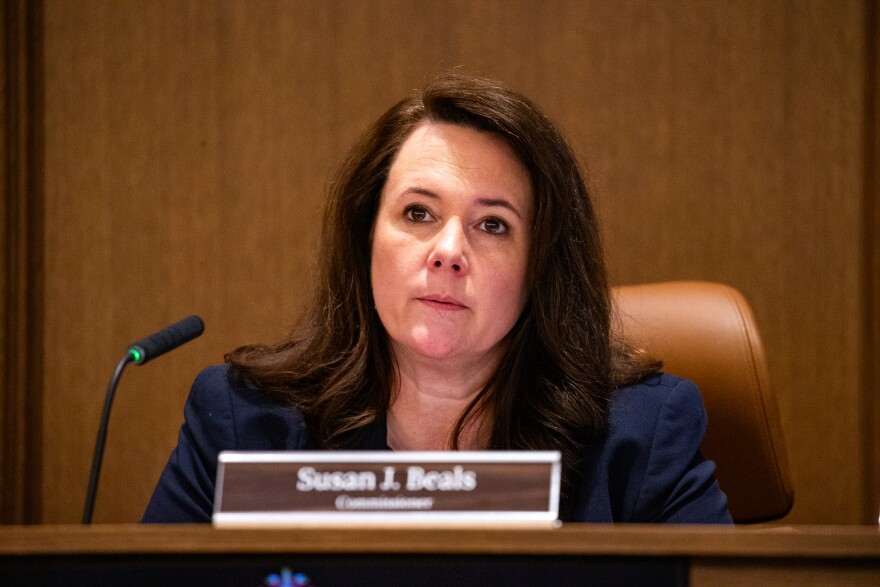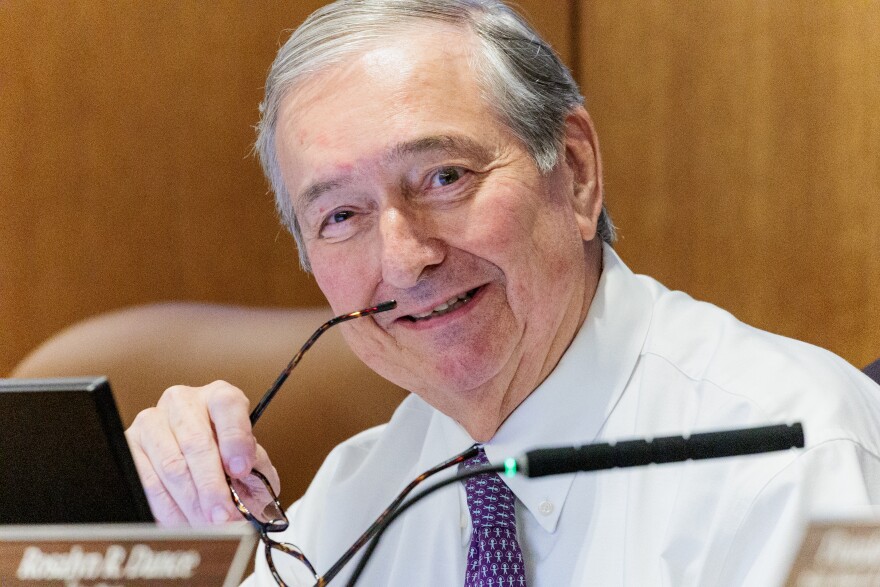Two members of the Waynesboro Electoral Board are suing the Virginia Department of Elections and State Board of Elections to change how votes are counted — and threatening not to certify 2024 election results there.

In the suit, Waynesboro board chair Curtis Lilly and vice chair Scott Mares argue that state policy on vote counting — specifically, sealing votes after they’re tabulated by counting machines — violates a provision of the state constitution.
That provision says ballot boxes or counting machines “shall be kept in public view and shall not be opened, nor the ballots canvassed nor the votes counted, in secret.”
Lilly and Mares argue electoral board members have no way of ensuring the program used to run the counting machines remains unchanged after an initial accuracy test — or that the machines are not connected to the internet.
The suit says officials can’t verify:

- that the voting machine program being used to count the ballots is keeping a true and accurate count;
- that the voting machine program being used to count the ballots is recording the true and accurate count;
- and/or that the voting machine record tape accurately represents the ballots cast.
The officials said these things mean the machines — which are counting machines, not voting machines — are counting in secret, violating the state constitution.
University of Richmond law professor Henry Chambers called the suit “pretty silly.”
“I don't know how the suit’s going to turn out, but we need to recognize that it suggests that a very simple function can't be dealt with by a machine, and that seems a little counter to where we moved in terms of voting,” Chambers said.
He compared the role of counting machines to that of an ATM.
“The ATM tabulates. You ask for a certain amount of money from your account, it tabulates that amount, it gives you that money, it debits your account, and we have no real problem with that,” Chambers said.
The professor also argued the suit doesn’t get at the reasoning behind the constitutional provision against counting in secret.
“The Virginia state constitution, when it says you can't count votes in secret, I think we know what it's getting at,” Chambers said. “That is, we don't want registrars to pick up stacks of ballots, go into a dark room, do what they want with them and come out with a set of ballots and a count.”
Waynesboro is home to 14,939 active registered voters as of Oct. 1 and has voted strongly Republican in recent statewide elections, as characterized by the Virginia Public Access Project. Gov. Glenn Youngkin won by a 15-point margin in 2021, with the last Democratic victory coming in 2018 — when Sen. Tim Kaine won the city by fewer than 200 votes.
Virginia’s vote counting is public by law; post-election canvassing occurs in public meetings of electoral boards around the state. The commonwealth also certifies the accuracy of its counting machines with testing before they process any ballots.
Youngkin saw this test in action in Chesterfield County on Tuesday morning, writing on X: “A huge thank you to everyone working tirelessly to ensure fair and secure elections in Virginia!”
It’s unclear what a refusal to certify at the local level would mean for state election certification, but local delays have turned into statewide delays in the past.



